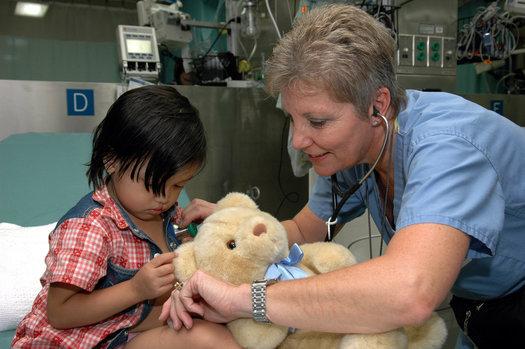
Nursing Role
The Registered Nurse’s (RN) unique role on the health care team is the ongoing assessment of the patient's health status and the patient’s response to their plan of care. For example, in the hospital setting the registered nurse is often the health care professional who spends the most time directly with the patient, providing around the clock observations and care.
The registered nurse is responsible for implementing the physician's orders, such as giving medications or changing dressings, and assessing the client’s responses to the treatment plan. The nurse is also responsible for evaluating the safety the medical plan of care before implementing it.
Nurses critically interpret patient information and assessment data to make decisions about what actions are needed. The nurse focuses on helping patients meet their needs, including physical, emotional, cognitive, social, and spiritual needs.
This includes working with the health care team to develop and implement the best-individualized, evidenced-based plan of care for the patient.
Nurses are patient advocates and facilitate optimal health, functioning, and wellness in the care of individuals, families, communities, and populations.
Another important component of nursing care is patient education and coaching. Nurses work with patients and the health care team to assist patients in learning how to manage their own health. This includes addressing such topics as healthy lifestyle choices, coping with a diagnosis, or understanding warning signs and symptoms of emerging problems.
The role of the nurse varies depending on the setting and the type of nurse. For example, the health care team may also have an Advanced Practice Nurse who has expanded knowledge and skills in a specific area after additional graduate level education.
Many Advanced Practice Nurses have collaborative practices with physicians. Advanced Practice Nurses include Nurse Practitioners, Clinical Nurse Specialists, Nurse Midwives and Nurse Anesthetists. Some advanced practice nursing activities overlap with physicians since Advanced Practice Nurses can perform select medical therapies (e.g., prescribe medication). However, Advanced Practice Nurses also continue to use their nursing knowledge with a unique focus on addressing symptoms (such as fatigue, discomfort, itching) and functional problems (such as difficulty swallowing, skin breakdown, decreased mobility).